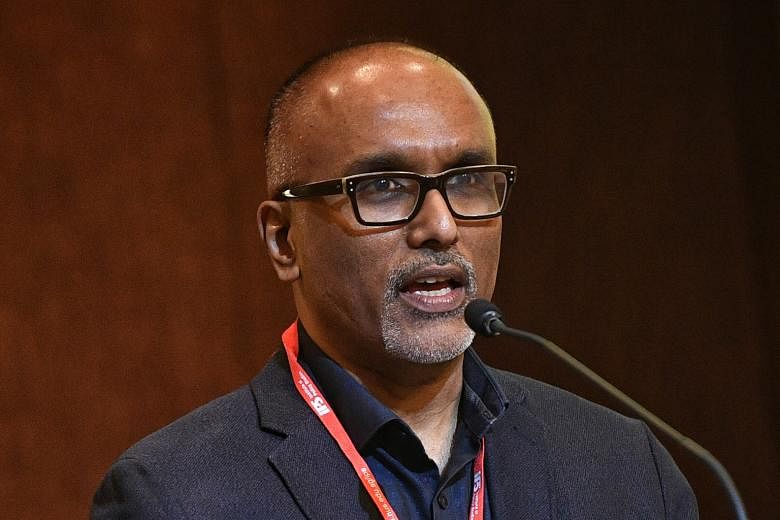Fake news has been in the spotlight with reports of Russia's apparent interference in recent elections in the United States and Europe.
But the focus on foreign efforts to spread falsehoods and sway public opinion can distort perceptions of where the most serious disinformation threats are, media academic Cherian George said yesterday.
Speaking to policymakers and media professionals from the region at the opening dinner of a forum on the subject, he cited four "greatest fake news hits of recent times" that he felt were less focused on, but far more serious: health myths spread by tobacco companies, climate change denial, hate propaganda, and lies that sparked the US invasion of Iraq in 2003.
Associate Professor George noted how tobacco firms' funding of research to cloud public awareness of the health risks of secondhand smoke had paid off. In Indonesia and China, only 60 to 70 per cent of people believe it can cause illness.
The former Nanyang Technological University academic who now teaches at Hong Kong Baptist University noted that last year, about 25,600 people died in terror attacks, compared to around six million who died from tobacco use.
"This means that for every one terrorism fatality, there are around 234 tobacco deaths," he said. "To put it another way, if we think ISIS videos and other terrorist propaganda deserve a vigorous response - which of course they do - we should probably also worry a little bit about the marketing and disinformation tactics of these gentlemen (in big tobacco)."
As for climate change, he noted that around 97 per cent of scientists agree that man-made climate change is real. But many Americans are still unaware of this, due to disinformation campaigns by conservative groups and energy corporations looking to sabotage efforts to reduce fossil-fuel emissions.
On hate propaganda, he noted that "behind calls to get rid of immigrants or suppress a religious sect, you will find the deliberate propagation of lies". He cited how a poll by the Centre for Security Policy, one of several US think-tanks that generate disinformation on Muslims, was used by President Donald Trump in his campaign to call for a Muslim ban. The poll claimed one in four Muslims believes in violent jihad against Americans and was debunked as unreliable.
Similarly, dubious facts later proven false - like Saddam Hussein developing weapons of mass destruction - were played up to mislead the American public and the global community there was an urgent need to invade Iraq militarily.
The two-day Asia Journalism Forum is organised by the Institute of Policy Studies and supported by Temasek Foundation Connects.
Prof George said new strategies are needed to respond to fake news as news outfits are strapped for time and help is needed from platforms like Google.
During a question-and-answer session, he was asked if he saw any justification for government involvement in combating fake news.
Several countries are considering laws on fake news, and Singapore plans to introduce legislation on it next year.
"The state does have an important role, but remember that the state has many body parts other than teeth," he said. Measures could include funding fact-checking projects and supporting media literacy efforts as well as independent press councils, he added.
He also said thresholds of intervention must be considered, citing stringent regulations governing misinformation on health products.
"This is an implicit acknowledgement that certain kinds of misinformation and exaggeration are simply not socially acceptable," he said. "But information about politics, information and ideas that help political debate, is not in that category. It's far more subjective."
Today, speakers will discuss various facets of fake news, why people fall prey to it, and how journalists and technology companies can work to tackle disinformation and build trust in journalism.


